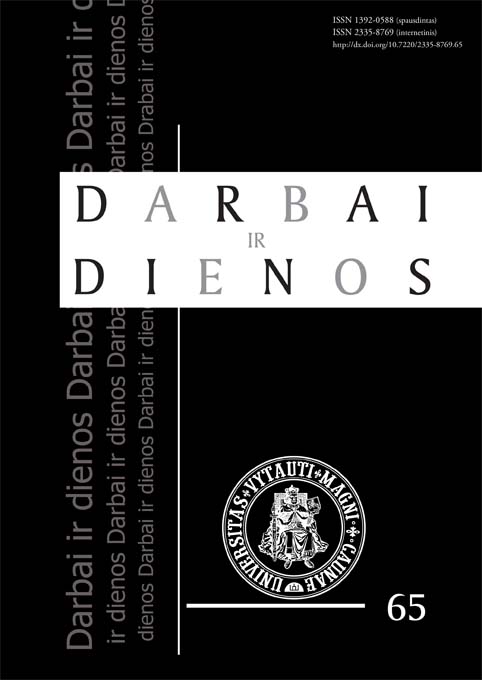Homo sovieticus: pilko ir pliko žmogaus portreto bruožai laisvėjančios Lietuvos spaudoje
Homo Sovieticus: Glimpses of Bleak and Bare Human Existence in the Press of a Re-Awakening Lithuania
Author(s): Laima VenclauskienėSubject(s): Politics / Political Sciences, History, Philosophy, WW II and following years (1940 - 1949), Post-War period (1950 - 1989)
Published by: Vytauto Didžiojo Universitetas
Keywords: Homo sovieticus; “Soviet man”; The “new Soviet man”; Lithuanian periodicals; 1988–1990; Psychological portrait; Soviet mentality
Summary/Abstract: Homo sovieticus, a term employed to define certain traits of Soviet mentality as it had been shaped (in Lithuania) by 50 years of life in the USSR, was a subject that Lithuanian periodicals from 1988 to 1990 wrote about in the course of rejecting what was deemed alien to the nation as embodied in the socialist system, the state, its symbols, and its values. Existing homo sovieticus concepts denote the specific mentality of a person living under the Soviet system and/or a specific type of person formed by the system, with adaptability/conformism, passivity, avoidance of responsibility, and a sense of helplessness being the chief characteristics of this individual. Homo sovieticus is contrasted to, and used to satirize, the new Soviet man, demonstrating the true result of this propaganda project; and it is also an outcome of a person’s ability to conform.Homo sovieticus in Lithuanian publications is not a marginalized or demonized other, but rather an ailing self mutilated by the Soviet system as well as a future (national) self in need of healing and re-adjustment. The Soviet human being is dehumanized, with his/her value being reduced to the function (s)he performs and to the level of assimilation into the collective, a nameless mass. In the periodicals, homo sovieticus is being portrayed as a little cog in the machine, an intimidated grey mediocrity. Accustomed to unquestioningly obey the Soviet power, (s)he is afraid of and hungry for power at the same time, trying to satisfy this aspiration in basically everything (s)he does (everyone, from cashier or shoe mender, seems to willingly demonstrate any power they have). Trying to control his/her sense of helplessness (it’s the psychology of a “shattered man” conforming to impersonal directives) (s)he adopts the system’s principle of absolute control: one must control one’s actions – you can only allow yourself what’s authorised (“don’t bite off more than you can chew”) – as well as one’s words and thoughts, with keeping silent and conforming being the best tactics. Homo sovieticus is also rendered “bare”: the lack of goods and the daily grind are accompanied by a sense of beggarhood and bare vulnerability. The value system of the Soviet human being is distorted, the yearning for hard-to-obtain basic goods is accompanied by moral erosion (“take what‘s placed badly”– i.e., steal; there’s the lingering atmosphere of indifference, the lack of responsibility). He or she has no homeland, is a “spiritual emigrant,” someone who’s experienced “spiritual genocide”: there no longer is a traditional “life under the maple tree,” and the state (s)he lives in is an utterly brutal apparatus.
Journal: Darbai ir dienos
- Issue Year: 2016
- Issue No: 65
- Page Range: 143-162
- Page Count: 20
- Language: Lithuanian

